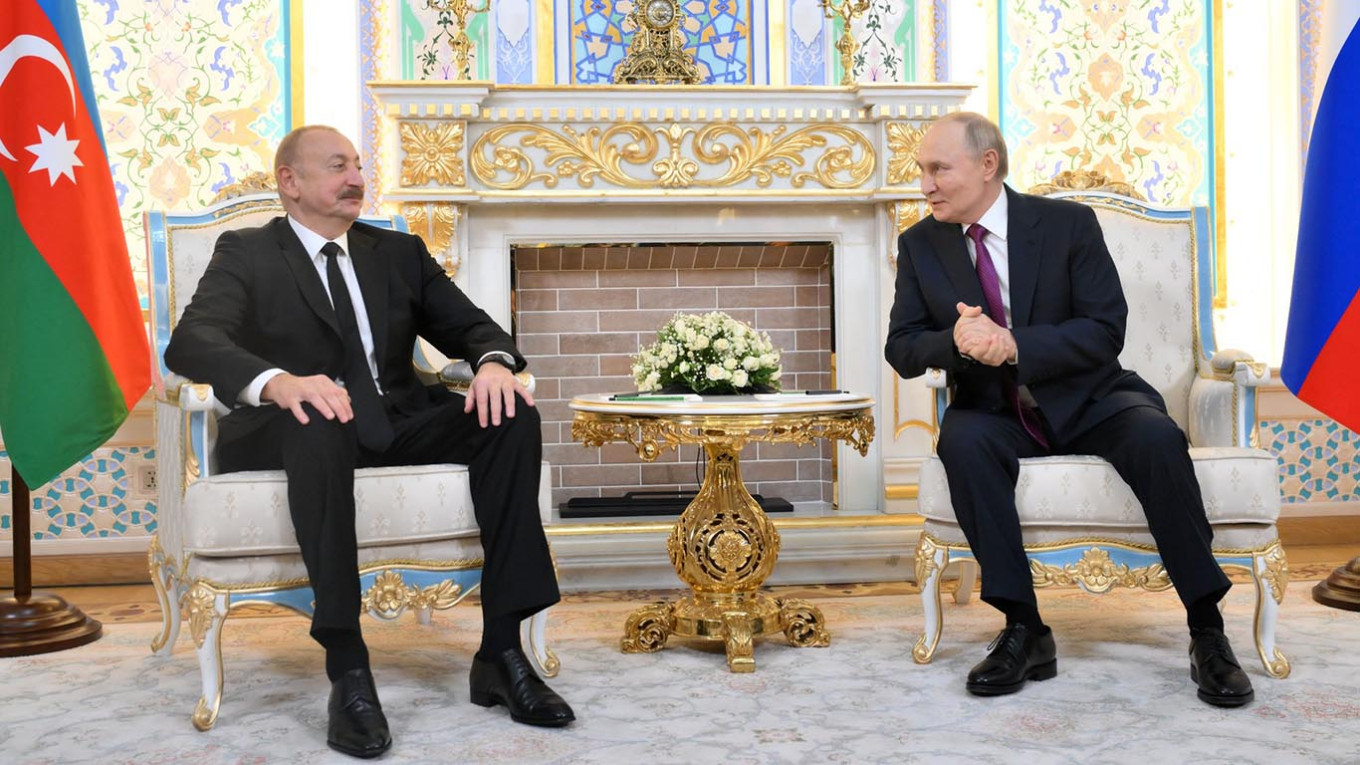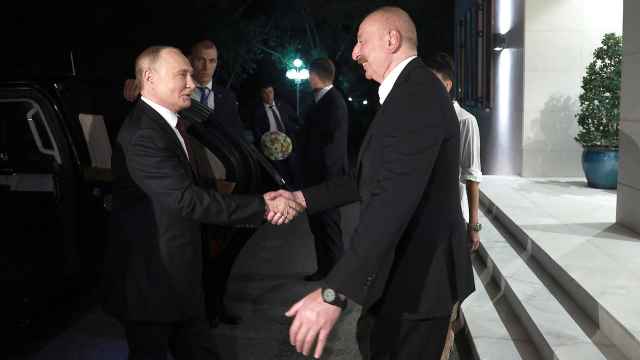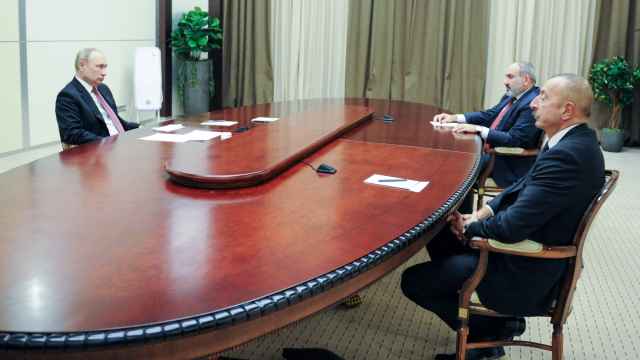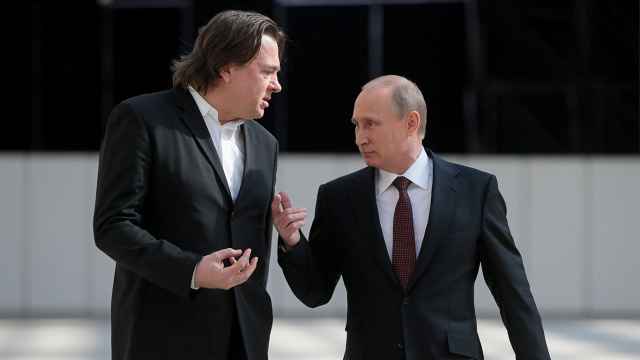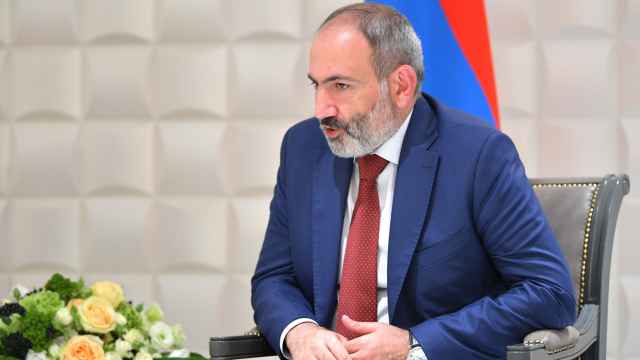The Kremlin said Wednesday that Russian President Vladimir Putin and Azerbaijan’s President Ilham Aliyev were working to “turn the page” in relations between Moscow and Baku.
Tensions eased earlier in October after Putin repeated his apology and, for the first time, publicly admitted to Aliyev that Russian anti-aircraft missiles were to blame for the December 2024 downing of an Azerbaijani Airlines passenger plane. Russian-Azerbaijan relations soured after the Kremlin initially sought to avoid blame for the deadly disaster.
Azerbaijan took a series of steps seen as retaliation for the incident, including the arrest of eight Russian nationals accused of engaging in cyber crimes and drug trafficking as part of alleged “organized criminal groups.”
“We value highly the outcome of the meeting between the two presidents in Dushanbe [Tajikistan]. It was a crucial step toward turning that very page in our bilateral relations,” Kremlin spokesman Dmitry Peskov told reporters Wednesday.
He spoke after a Baku court on Tuesday extended the pre-trial detention of the eight Russian citizens by three months starting Nov. 1.
Moscow has not commented publicly on the latest court ruling.
Peskov said Wednesday that Putin “raised all these sensitive issues” of the Russian citizens’ arrests during his Oct. 9 talks with Aliyev in Tajikistan.
Azerbaijan released the detained local bureau chief of the state-owned news outlet Sputnik shortly after that meeting.
On Friday, a Baku court ruled to move the second detained Sputnik Azerbaijan journalist to house arrest for three months.
“Work on the [arrests of Russian nationals in Azerbaijan] continues at the expert level,” Peskov told reporters.
The Azerbaijan Airlines jet, carrying 62 passengers and five crew members, was flying from Baku to Russia’s republic of Chechnya on Dec. 25 when it disappeared from radar before crashing in Kazakhstan, killing 38 people on board.
Russian officials offered conflicting explanations for the disaster, initially suggesting that poor visibility or a possible bird strike was to blame, and later saying air defense systems were targeting Ukrainian drones in the area.
Kazakhstan published a 53-page report in February that referred to “external objects” striking the aircraft and saying the damage caused a loss of hydraulic fluid and pressure, leading to stabilizer failure. Russian civil aviation authorities said they were not granted full access to the wreckage.
Putin told Aliyev this month the investigation into the crash was nearing completion.
A Message from The Moscow Times:
Dear readers,
We are facing unprecedented challenges. Russia's Prosecutor General's Office has designated The Moscow Times as an "undesirable" organization, criminalizing our work and putting our staff at risk of prosecution. This follows our earlier unjust labeling as a "foreign agent."
These actions are direct attempts to silence independent journalism in Russia. The authorities claim our work "discredits the decisions of the Russian leadership." We see things differently: we strive to provide accurate, unbiased reporting on Russia.
We, the journalists of The Moscow Times, refuse to be silenced. But to continue our work, we need your help.
Your support, no matter how small, makes a world of difference. If you can, please support us monthly starting from just $2. It's quick to set up, and every contribution makes a significant impact.
By supporting The Moscow Times, you're defending open, independent journalism in the face of repression. Thank you for standing with us.
Remind me later.


